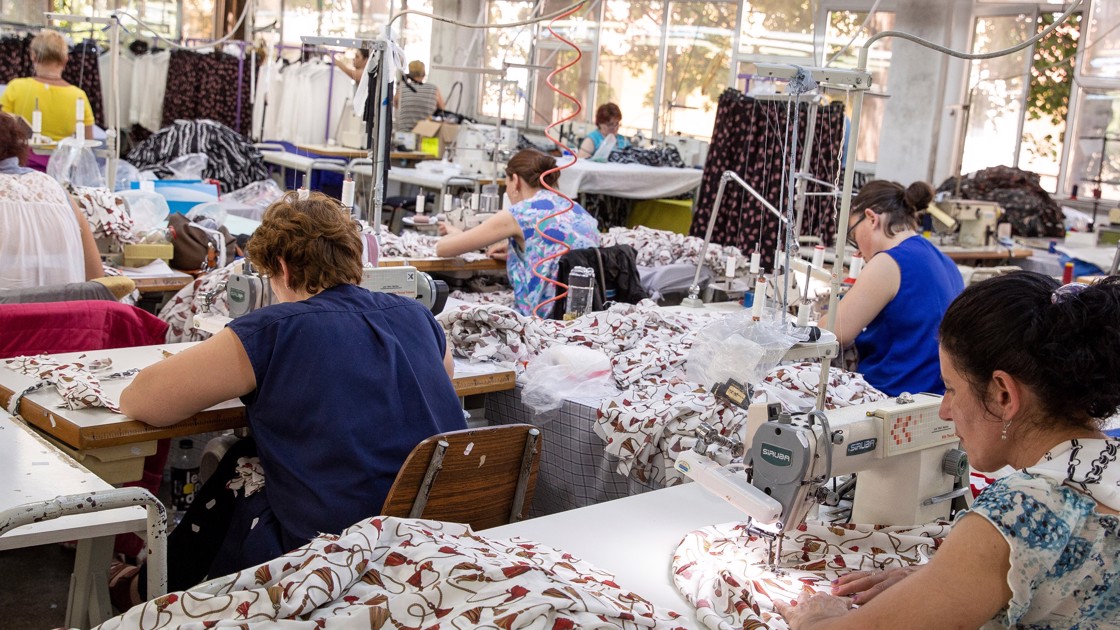It is unacceptable that workers’ wages fall below the minimum wage and that emigration is the only solution that people see. Bulgaria needs national and sectoral agreements that ensure decent wages for workers and a stable workforce for employers.
Evidence from Bulgaria demonstrates that employers now recognise the need for a sectoral agreement which would help set a level-playing field for wages and prevent unfair competition. This is crucial to improve wages and working conditions and vital to attract qualified workers to the sector and halt the massive emigration of Bulgarian workers to Western Europe. We couldn’t agree more. Negotiating 'Together at Work' benefits all: workers, employers and society.
Bertram Rollmann, General Manager of the Bulgarian textile company Pirin Tex EOOD, tells us that “Collective bargaining is at the centre of every successfully functioning market economy and is crucial for a responsible sector development. It provides the social trust both management and labour need to work better together in making the workplace more productive and more innovative. Politicians in Bulgaria should understand this better and should introduce a legal framework for obligatory sectoral collective bargaining in our country. A collective agreement sets clear cornerstones for the individual career of each worker. S/he knows which qualifications are needed so that s/he will earn a certain wage. Workers have an interest to reach the best possible wage they can get. Therefore, wage remuneration, set at the right level, represents the personal appreciation of a single worker and it can motivate, leading to a better performance. This is beneficial for workers’ own development and for the company which perform better thanks to well trained and motivated employees. Secondly, if sectoral social partners negotiate one can be sure that they are experts in the sector. Together they will always look for and find the best solution.”
Such solutions are badly needed since the TCLF sector is notorious for its low wages and bad working conditions for its predominantly female workforce. The main cause of the precarious situation of workers in this sector is the unwillingness of big fashion brands to pay decent prices for orders to their suppliers. This prevents suppliers paying living wages to their workers.
In Bulgaria, 130.000 registered and non-registered employees work in the garment and textile industries. The minimum wage in 2018 was 202 Euro/month and the lowest sectoral average wage was 258 Euro. Considering that the at-risk-of poverty threshold (EU Statistics on Income and Living Conditions ‘EU-SILC’) is set at 377 Euro, Bulgarian workers are clearly experiencing in-work poverty. However, the reality is even worse because actual wages often fall below the minimum wage.
The Clean Clothes Campaign (CCC) reports in its country profile on Bulgaria a “systemic non-payment of legal minimum wage within regular working hours and without allowances.” Hence, workers can only reach the already insufficient minimum wage through excessive overtime. National Social Security Institute data confirms that most factory floor workers do not receive the minimum wage. Tailors, for example, had in 2017 a declared average net wage of 188 Euro/month, including overtime and allowances. Clearly, this is a situation where work no longer provides a solution against poverty.
Union density is under 5% and there are few company-level collective agreements. Ten years ago, the employers announced that they no longer wanted to have a branch agreement. This position is now changing.
Luc Triangle, industriAll Europe’s General Secretary, said: “The Bulgarian government needs to facilitate the rebuilding of sectoral-level collective bargaining, which is desperately needed by both unions and employers. It is unacceptable that workers’ actual wages fall below the minimum wage and that emigration is the only solution that people see. Bulgaria needs national and sectoral agreements that ensure decent wages for workers and a stable workforce for employers.”
For more information or further comment please contact Patricia Velicu.
